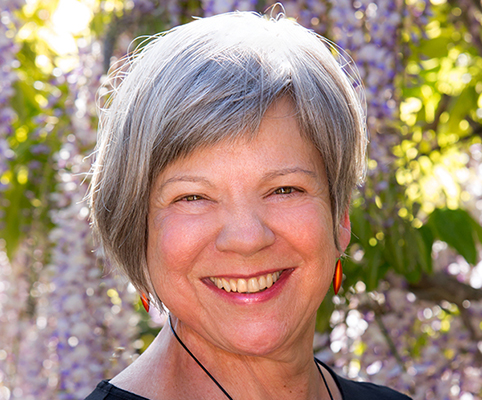Having Cancer Means Learning to Be Selfish
by Martina Reaves
2008. Cancer. Again. Why me? This time, it’s my tongue. Last time, in 1986, it was lymphoma in my chest, treated with intense chemo. This time, it’s three gruesome surgeries, seven long weeks of radiation, and months of recuperation.
2009. A new year. A new beginning. But it’s back, and I’m told I’m terminal.
At this point, I already know a lot about dealing with friends, family, and colleagues. I have my email list and send updates regularly. Yet, despite my best effort to keep people informed, I’m overwhelmed with questions and people who want answers.
I go from medical appointments, where I answer a zillion questions from doctors, to a social life filled with people who also have questions and want answers. How do you feel? Can I see your neck? Does it hurt? What do the doctors say? How do you cope? What can I do? Let me see your tongue. Have you tried … ?
Finally, I get the best piece of advice I’ve received from anyone throughout this journey: Don’t talk about the cancer! Don’t dwell on it. Do what you have to do, but train your mind to not ruminate on it. When your mind thinks about cancer, gently and quietly tell it, Stop. When people ask questions, gently tell them you’d rather not discuss the details. Be kind to yourself, and to them.
I send an email to my cancer list and tell folks I’m going to try a new “remedy.” I’m not going to talk about cancer anymore, though I’ll continue to provide email updates as things progress. Some of my friends can’t quite accept these wishes and must be trained before they understand that I’m not going to have long conversations about treatment choices, medical care, or alternative treatments. And I’m not going to take care of their feelings because I have too many of my own to manage.
I learn to be a bit selfish, to put myself first. After more than 50 years of being acutely sensitive to others’ needs, I learn to become aware of my own needs. When people visit and stay too long, I remember that my main job is to take care of me. I excuse myself from the banter and retreat to my sunny bedroom to sleep, or read, or meditate, or simply space out.
When people visit and stay too long, I remember that my main job is to take care of me. I excuse myself from the banter and retreat to my sunny bedroom.
I begin a practice of maintaining hope while simultaneously accepting that death may come soon. I don’t want to be in denial, but I also don’t want to surrender. This wafer-thin line between hope and acceptance is tricky to navigate, and I lose my balance sometimes. But it’s worth the emotional effort.
I embrace my life.
I write.
I read great books.
I snuggle in with my wife, our son, and our friends.
I rest.
I smell the flowers that continue to arrive.
I relish the warm sun on my body.
I speak the truth as best I can.
I imagine myself, alive and well, walking toward the sun in 2021, which seems like the distant future, since it’s 2009 and I’m supposed to die soon. Now it’s 2020, and here I am. I failed to die. It’s not clear why. Was it my insistence on maintaining hope? The chemo that wasn’t supposed to cure me but simply help me live longer? Was it meditation or acupuncture? Or staying as calm as I could? Nobody knows.
All I know is that, one day, my oncologist threw up his hands and said, “I don’t know why you haven’t died, but you best get on with long-term issues like colonoscopies and cholesterol.”
I knew what this meant. In Cancer World, nobody ever says you’re cured. But you don’t need to deal with long-term health issues if there won’t be a long term. I pronounced myself healed. And I’m still walking toward the sun in 2021.
Martina Reaves lives in Berkeley, CA, with her wife of almost 40 years. A former attorney and mediator, she has focused on writing since 2007. Her memoir, I’m Still Here, was published by She Writes Press in April. She has just completed her second memoir, Ebb & Flow, a compilation of flash memoirs. You can learn more about Martina at MartinaReaves.com.
This article was published in Coping® with Cancer magazine, May/June 2020.
Everyone has a unique story to share. Do you want to share your survivor story? We consider a cancer survivor to be anyone living with a history of cancer – from diagnosis through the remainder of life.
Here are our submission guidelines.


